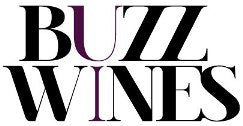100% Malbec from purchased fruit grown on the 1st and 2nd terraces close to the river. The fruit is 100% de-stemmed and crushed, then the juice given a 3-4 day cold soak, to extract colour and a little tannin, before being pressed and cool-fermented in stainless steel. Matured in concrete tanks for 6-8 months.
'This shows the soft, juicy side of Malbec. No serious tannins here, just red berry fruit and fine acidity. That means it's ready to drink this winter.'

'When we first started working with lees a decade or more ago we had typically 50mm or more of lees and we would get quite a bit of reduction. Today with healthier fruit from organics, we start with less than 30mm of lees, but after 18-24 months we have only 1mm of lees remaining and no reduction at all. Amazingly, the lees have been assimilated back into the wine.' Pascal Verhaeghe, November 2017.
Château du Cèdre is widely regarded as the leading estate in Cahors. Brothers Pascal and Jean-Marc Verhaeghe, both qualified oenologists, can trace its history back to their grandfather Léon who left his native Flanders to settle in south-west France in the early 1900s. In due course Léon’s son Charles and his wife Marie-Thérèse started a mixed farm in 1958 and began planting one hectare of vines in three different plots every year.
Today, Château du Cèdre comprises 27ha of vineyards planted at 4000-5500 vines per hectare on some of the most prized terroirs in Cahors, most notably the famous troisième terrasses. In keeping with the long history of Cahors, 90% of the vineyard is planted to Malbec (known locally as both Cot and Auxerrois), with 5% Merlot (now known to be a half-sibling of Malbec) and 5% Tannat. There is also 1ha of Viognier and a little of the Bordeaux whites, Sémillon, Muscadelle and Sauvignon Blanc.
After a disastrous hail storm in 1995, the brothers decided to re-evaluate their mode of operation in the vineyard, with a goal of bringing to an end the long term use of synthetic chemicals that had plagued the entire world of wine for 50 years (and had directly contributed to the untimely death of the brothers’ father Charles). By 2002 they had eliminated all chemicals from the estate and by 2012 Château du Cèdre was certified organic.


